Legal tech entrepreneurship, intellectual property rights consulting, alternative dispute resolution, legal advisor are some of the best new-age career options after clearing CLAT 2026.
Table of Contents
The best new-age career options after clearing CLAT 2026 include corporate compliance, legal journalist, corporate counsellor, legal consultancy, and much more. After clearing CLAT 2026, students can get lucrative packages.
The demand for a law degree has increased significantly in recent years. The number of legal job opportunities has also grown drastically over the decade. Let us take a look at some of the best new-age career options after clearing CLAT 2026.
Top 5 New-Age Career Options After Clearing CLAT 2026
Clearing the CLAT 2026 opens up a world of exciting career opportunities beyond traditional law practice. While many think of becoming a lawyer or judge, the legal field has evolved, offering new-age career paths that blend law with technology, business, and more.
Whether you're interested in shaping the future of legal technology, helping businesses stay compliant with laws, or educating the public about legal matters, there are many unique and lucrative options to explore. Below mentioned are the popular new-age career options that aspirants opt for, whose head is lingering with the only question "What after clearing CLAT 2026" for the students reference.
1. Corporate Compliance Officer (Average Annual Salary: INR 6.5 LPA)
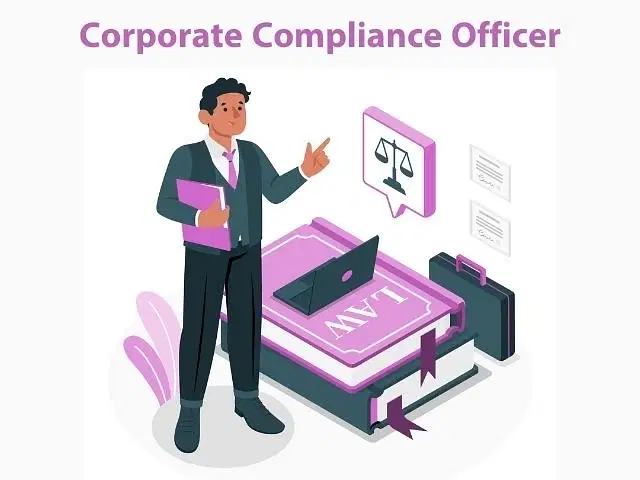
Corporate Compliance is one of the best new-age career options after clearing CLAT 2026. The need for legal professionals with expertise in corporate compliance and governance is growing in an era of complex corporate audits and accountability.
A Corporate Compliance Office ensures a company follows laws, regulations, and ethical practices. It creates policies, trains employees, monitors risks, and investigates any violations. The office conducts audits, keeps records, and communicates with regulators to ensure compliance. It also supports whistleblowers and promotes a culture of integrity. By keeping the company accountable and updating management, the CCO helps avoid legal issues and builds trust with employees and stakeholders.
Also Check: How to Choose Right NLU After CLAT 2026? Key Factors, and Top NLUs
Here are some key career paths within Corporate Compliance:
- In-House Compliance Officer
- Compliance Manager
- Risk and Compliance Consultant
- Regulatory Compliance Officer
- Ethics and Compliance Officer
- Internal Auditor
- Global Compliance Officer
- Government Compliance and Enforcement Roles
The key responsibilities of corporate compliance include:
- Ensuring Regulatory Adherence: Making sure the organisation complies with laws, regulations, and industry standards.
- Developing Compliance Policies: Creating and implementing policies and procedures to promote ethical conduct and compliance.
- Conducting Risk Assessments: Identifying and mitigating legal and regulatory risks within the organisation.
- Training and Awareness: Educating employees about compliance policies, laws, and ethical standards.
- Monitoring and Auditing: Regularly reviewing business practices to detect and address potential compliance issues.
- Handling Investigations: Managing inquiries into compliance breaches and ensuring corrective actions are taken.
- Reporting to Leadership: Providing updates to senior management and the board on compliance issues and solutions.
- Maintaining Records: Keeping detailed documentation of compliance activities, audits, and training sessions.
Must Read: 7 Must-Do Things after CLAT 2026 Exam
2. Legal Journalist (Average Annual Salary: INR 4 LPA-INR 5 LPA)
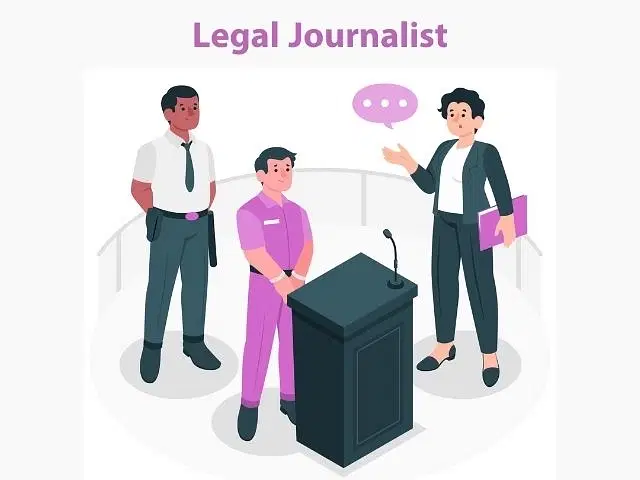
Another new-age career options after clearing CLAT 2026 is Legal Journalist. Legal journalism is for law graduates who are interested in both writing and the law. With the increasing demand for lawyers and judges, there's a rising need for legal content.
Law students or lawyers with strong writing skills can contribute to legal blogs, publications, or even start their own YouTube or Instagram channels focused on legal topics. These platforms also give experienced professionals a chance to share their knowledge, helping the public understand important legal issues and landmark cases.
Here are some key career paths within Legal Journalism:
- Legal Reporter
- Legal Blogger/Content Writer
- Legal Analyst
- Investigative Legal Journalist
- Broadcast Legal Journalist
- Podcast Host on Legal Issues
- Legal Editor
- Public Relations Specialist for Law Firms or Legal Organisations
The key responsibilities of legal journalism include:
- Reporting on Legal News: Covering court proceedings, judgments, and legal developments.
- Explaining Complex Legal Topics: Simplifying laws, rulings, and legal concepts for the general public.
- Analysing Landmark Cases: Providing in-depth analysis of significant court decisions and their implications.
- Monitoring Legal Reforms: Tracking changes in laws and regulations and how they affect society.
- Promoting Legal Awareness: Educating people about their rights and duties under the law.
- Interviewing Legal Experts: Gaining insights from judges, lawyers, and policymakers on current issues.
- Ensuring Accuracy: Presenting unbiased and factual information while adhering to journalistic ethics.
3. Alternative Dispute Resolution (Average Annual Salary: INR 9.5 LPA)
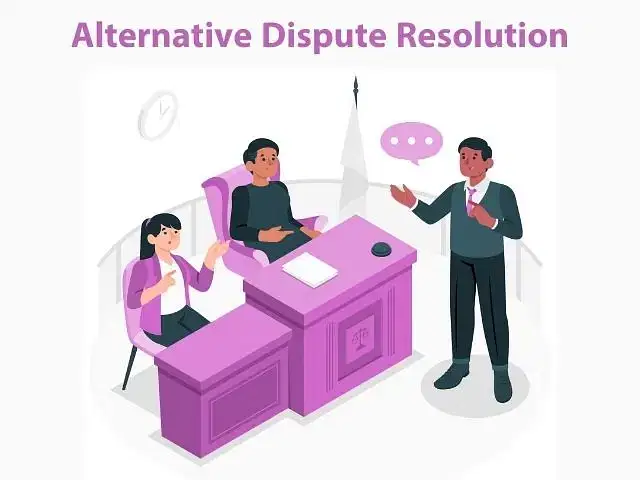
One of the most well-known new-age career options after clearing CLAT 2026 is Alternative Dispute Resolution. Law graduates can specialise in this area, providing a quicker and more adaptable method of settling disputes outside of court.
An Alternative Dispute Resolution (ADR) officer is a neutral third party who helps resolve disputes without going to court. Acting as a mediator or arbitrator, they assist parties in improving communication, identifying shared interests, and finding creative solutions. ADR helps save time and money by avoiding the delays and costs of litigation while fostering better understanding and cooperation between parties.
Here are some key career paths within Alternative Dispute Resolution:
- Conciliator
- Arbitrator
- Mediator
Case administrator - Contract negotiator
- Workplace investigator
- Human resources manager
- Labour relations manager
- Paralegal
- Ombudsmen
- Customer resolution specialist
- Marriage and family therapist
Conflict management consultant - Appraiser
- ADR program director
The key responsibilities of Alternative Dispute Resolution (ADR) include:
- Facilitating Communication: Helping parties discuss issues openly and constructively.
- Mediating Disputes: Acting as a neutral party to guide discussions toward mutual agreement.
- Arbitrating Cases: Making binding or non-binding decisions based on evidence and arguments.
- Identifying Common Interests: Finding areas of agreement to build solutions.
- Encouraging Creative Solutions: Helping parties explore innovative ways to resolve disputes.
- Saving Time and Costs: Reducing the need for lengthy and expensive litigation.
- Maintaining Neutrality: Ensuring fairness and impartiality throughout the process.
- Preserving Relationships: Promoting cooperation and understanding to avoid future conflicts.
Also Read: Top Career Options in Law
4. Intellectual Property (IP) Rights Consulting (Average Annual Salary: INR 4 LPA)
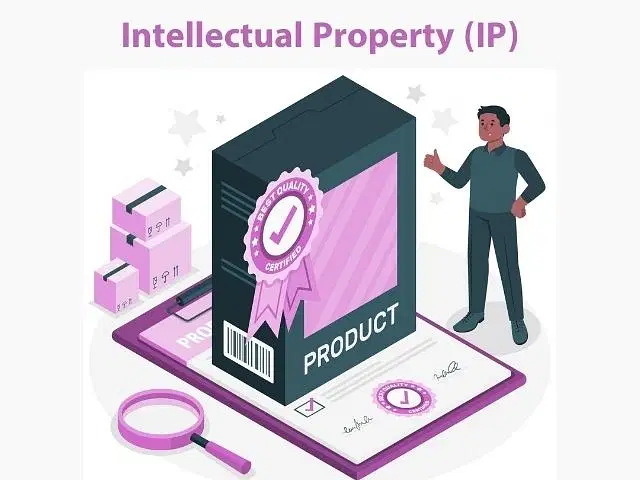
The position of an Intellectual Property (IP) Rights consultant is one of the prominent new-age career options after clearing CLAT 2026. Professionals with a strong understanding of intellectual property laws can work in intellectual property consultancy.
An Intellectual Property (IP) rights consultant helps businesses protect and manage their IP assets, like trademarks, patents, copyrights, and trade secrets. They ensure these assets are legally secure and commercially valuable. Consultants also identify unused assets, assess risks, and explore ways to improve management or generate income from IP.
Here are some key career paths within Intellectual Property (IP) Rights Consulting:
- IP Consultant:
- Patent Consultant:
- Trademark Consultant:
- Copyright Consultant:
- IP Licensing Specialist:
- IP Litigation Consultant:
- IP Valuation Expert:
- Technology Transfer Specialist:
- IP Strategy Consultant:
- Global IP Advisor:
The key responsibilities of intellectual property (IP) rights consulting include:
- Protecting IP Assets: Ensuring trademarks, patents, copyrights, and trade secrets are legally secure.
- IP Strategy Development: Creating plans to maximise the value of IP assets.
- Risk Assessment: Identifying potential IP violations or legal risks.
- Monetising IP: Exploring opportunities to generate revenue from IP.
- Managing IP Portfolios: Organising and optimising existing IP assets.
- Resolving IP Disputes: Assisting in negotiations or legal matters related to IP.
- Educating Clients: Guiding IP laws and best practices.
Also Check: Which Stream is Best for CLAT 2026?
5. Legal Tech Entrepreneurship (Average Annual Salary: INR 4 LPA-INR 6 LPA)
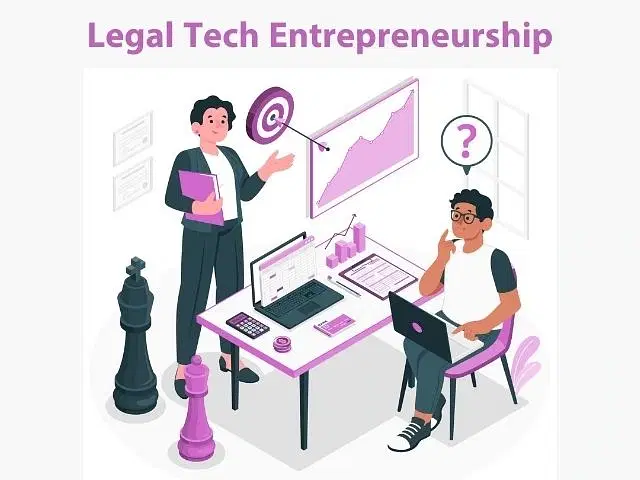
One more new-age career options after clearing CLAT 2026 is Legal Tech Entrepreneurship. Individuals with a legal background can use their skills to develop creative legal solutions.
In today’s digital world, people with a legal background can use their skills to create new solutions for the legal field. Starting a legal tech startup allows them to develop software, apps, or platforms that make legal processes easier, offer online dispute resolution, or provide easy access to legal information.
Here are some key career paths within Legal Tech Entrepreneurship:
- Legal Tech Founder/Co-Founder
- Product Manager for Legal Tech Solutions
- Legal Tech Consultant
- Legal Data Scientist/AI Specialist
- Legal Tech Sales/Marketing Professional
- Legal Innovation Specialist
- Regulatory and Compliance Advisor for Legal Tech
- User Experience (UX) Designer for Legal Tech
- Legal Tech Investor
- Legal Tech Educator/Trainer
The key responsibilities of a legal tech entrepreneur include:
- Identifying Legal Needs: Recognizing challenges or gaps in the legal industry that can be addressed with technology.
- Developing Innovative Solutions: Creating software, apps, or platforms that improve legal processes, access, or efficiency.
- Testing and Refining Products: Ensuring the tech solutions are effective, user-friendly, and meet legal requirements.
- Building Partnerships: Collaborating with legal professionals, firms, or organisations to enhance product relevance.
- Navigating Legal Regulations: Ensuring the product complies with applicable laws and regulations.
- Marketing and Scaling: Promoting the product to target audiences and expanding its reach.
- Securing Funding: Raising capital to fund the development and growth of the business.
- Improving Accessibility: Making legal services and information more accessible and affordable for users.
Also Check: How to Become a Judge After CLAT: Complete Step-by-Step Guide
Related Best New-Age Career Options After Clearing CLAT 2026 Article Links
| Failed in CLAT? What Are the Other Options? | Tips for Cracking Post-CLAT Interviews and Group Discussions |
Skills Required to Get Lucrative Law Jobs Through CLAT 2026
The law degree has a broad scope, offering a number of job opportunities. One must possess both hard and soft skills to get into the various job roles in the law field. After knowing about the best new-age career options after clearing CLAT 2026, to secure lucrative law jobs, professionals need a blend of technical legal skills, soft skills, and business acumen. Here are key skills required: .
-
Strong Legal Knowledge:
In-depth understanding of laws, regulations, and legal processes is crucial. Specialising in areas such as intellectual property, corporate law, or international law can make candidates stand out. -
Research and Analytical Skills:
The ability to research complex legal issues, analyse statutes, case law, and legal precedents is vital for building strong cases and providing sound legal advice. -
Communication Skills:
Effective communication, both written and oral, is essential for drafting legal documents, presenting arguments in court, and advising clients clearly. Strong negotiation skills are also important for settlement discussions. -
Attention to Detail:
Accuracy is critical in law, as small errors can have significant consequences. Being detail-oriented helps lawyers spot issues in contracts, legal documents, or arguments that others might overlook. -
Problem-Solving and Critical Thinking:
The ability to think strategically and creatively to solve legal challenges is key, especially when working on complex or high-stakes cases. -
Time Management and Organisation:
Lawyers often handle multiple cases simultaneously. Strong organisational skills and the ability to manage time effectively ensure deadlines are met and cases are handled efficiently. -
Client Management and Relationship Building:
Building and maintaining strong relationships with clients is essential for long-term success. Being able to understand client needs and provide tailored legal solutions fosters trust and repeat business. -
Business Acumen:
Understanding the business side of law, including client billing, managing a law firm, or providing corporate legal advice, is increasingly important, especially for roles in corporate law or as a partner in a firm. -
Tech Savvy:
With the rise of legal technology, understanding tools for legal research, e-discovery, contract management, and legal project management can give candidates an edge, especially in legal tech or modern law firms. -
Leadership and Management Skills:
For senior positions, the ability to lead a team, manage staff, and provide guidance to junior lawyers or legal assistants is crucial for long-term career growth. -
Ethical Judgment and Integrity:
Lawyers are expected to uphold high ethical standards. Demonstrating integrity, ethical decision-making, and professionalism can significantly boost a lawyer’s reputation and career advancement. -
Adaptability and Lifelong Learning:
The legal field is constantly evolving. Lawyers must stay current with changes in laws, technology, and industry trends, demonstrating a commitment to continuous professional development.
By developing these skills, legal professionals can increase their chances of landing and excelling in high-paying, rewarding roles within law firms, corporations, government agencies, or as independent consultants.
Also Read: Do's and Don'ts for CLAT 2026





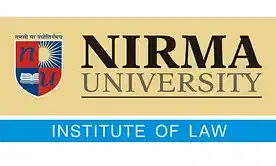


























POST YOUR COMMENT